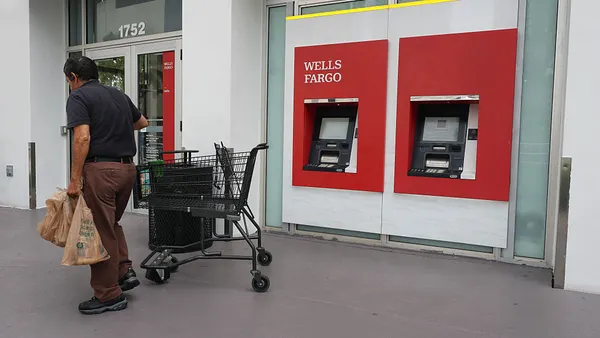Dive Brief:
-
The California Department of Financial Protection and Innovation has ordered challenger bank Chime to cease and desist language the regulator says falsely portrays the fintech as a bank, according to a settlement agreement reached March 29.
-
The San Francisco-based company has been the subject of a yearlong investigation by the California regulator for using "chimebank.com" as its web address prior to February 2020, and for using the terms "bank" or "banking" in its business.
-
Chime, which does not have a banking license, has cooperated with the investigation, and has neither admitted nor denied any wrongdoing, according to the settlement.
Dive Insight:
Chime, which launched in 2013, is not a bank, but partners with The Bancorp Bank and Stride Bank to offer its customers financial products such as debit cards and Federal Deposit Insurance Corp. (FDIC)-insured deposits.
The California agency claims Chime has not adequately disclosed this distinction to its customers and ordered the fintech to distance itself from the use of the term "banking" and its derivatives by clarifying statements on its website, mobile app and in advertising.
Chime is also ordered to clarify in paid Google search results and ads that its banking services are provided by its bank partners, and is required to identify the partners by name.
The fintech is required to clarify in the frequently asked questions section of its website that its bank accounts are held at partner banks, and must "provide a clear and prominent disclaimer during the account set up process to inform the consumer that Chime is a financial technology company not a bank."
Chime has until May 15 to revise its website and advertising in accordance with the California regulator’s order and has until June 15 to perform quality control and testing of the changes, according to the settlement.
"As a financial technology leader, Chime takes its obligations to regulators and consumers very seriously," the company said in a statement. "We embrace the opportunity to work collaboratively with the State of California to ensure our products are transparent and always put our members first. We look forward to advancing the state's interests as Chime pursues its vision of providing everyday Americans access to financial services that are safe, fair and affordable."
As fintechs and neobanks continue to grow in popularity among consumers — Chime has 12 million customers, according to an estimate by Cornerstone Advisors — the legal and regulatory scrutiny of the landscape is likely to intensify, said Adrian Ungureanu, managing principal at consulting firm Capco.
"Fintechs are spending millions of dollars to become banks, so the designation is an important one," he said. "The focus on the right label will be scrutinized by current banks, fintechs seeking to become banks, consumers and regulators."
Digital bank Varo became the first challenger bank to obtain a national charter last year, a process that took three years and cost the fintech $100 million. After it gained the charter, the company changed its name from Varo Money to Varo Bank.
Banks and fintechs are doubling down on their compliance efforts as regulatory scrutiny heats up, Ungureanu said.
"Marketing and consumer communication in general is now under a more stringent compliance lens, where most organizations engage their regulatory and compliance subject matter experts to review and approve such messaging before distribution," he said.













